Reconciliation amid racism: Is it possible on the Prairies?
Indigenous leaders recommend revisiting the treaties, the justice system and the word 'reconciliation' itself
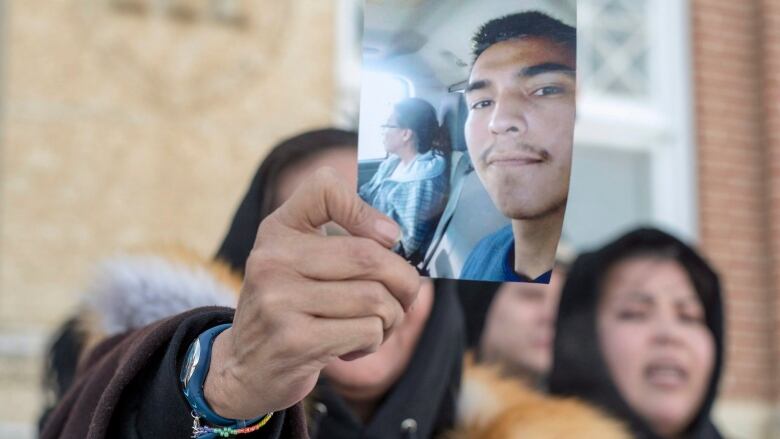
Max FineDay felt an unspeakable rage and an overwhelmingsorrow when Gerald Stanley walked freefrom the courthouse in Battleford, Sask., earlier this year.
Stanley fatally shot 22-year-old Colten Boushie in August 2016 on his farm in the Biggar, Sask., area. In February, the white Saskatchewan farmer was acquitted of second-degree murder in the death of the Cree man.
FineDaytravelled home to theSweetgrassFirst Nation in Saskatchewan to speak to his elders after the verdict was announced. He works in Ottawa as the executive director of the Canadian Roots Exchange, an organization that works with Indigenous and non-Indigenous youth toward reconciliation.
"Grandchild, you must persevere in the way that all of our ancestors have done before, because you stand on their shoulders," they said to him on Treaty Six territory.
- Full coverage of the Gerald Stanley Trial
- Shouts of 'murderer' in courtroom after Gerald Stanley acquitted
An undercurrent of tension rippled over the plains as winter persisted. Two weeks after Stanley was acquitted, another jury delivered a verdict at a Winnipeg murder trial involving an Anishinaabe victim and an accused white person.
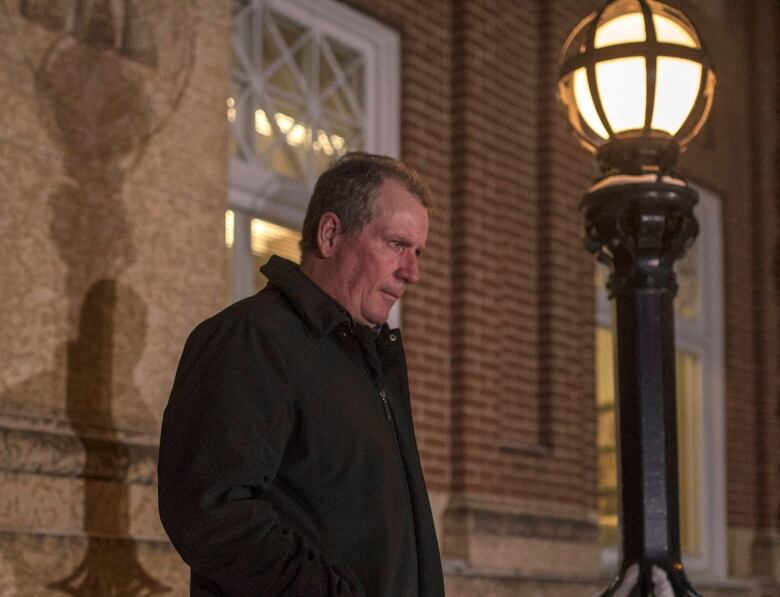
The cases and their outcomes put people in Saskatchewanand Manitobaon edge. They highlighted racial tensions and perceived inequities in Canada's justice system.
It seemed everyone wanted to voice their emotionally charged opinions, no matter how much or how little they actually understood about the cases.
It's not some boogeyman, some nameless face behind a keyboard; it's your neighbour, it is the person you are shopping next to in the grocery store.- Max FineDay,Canadian Roots Exchange, on racism
People called for peace and togetherness. Others engaged indisplays of online racism, often under the protection of a pseudonym.
On March 7, tensions flared again when the Crown announced it would not appeal the Stanley verdict. The same happened on March 13 in the Cormier case.
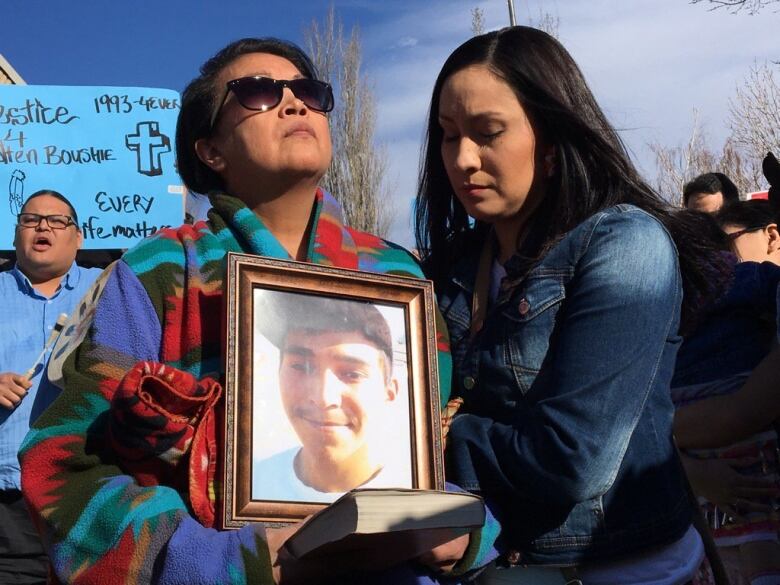
Is reconciliation a pipe dream?
"It's not just up to governments to bring reconciliation. It's not going to be bestowed by Ottawa. This is the handiwork of all of us," FineDay said. "Canada needs to recognize that we aren't who we think we are."
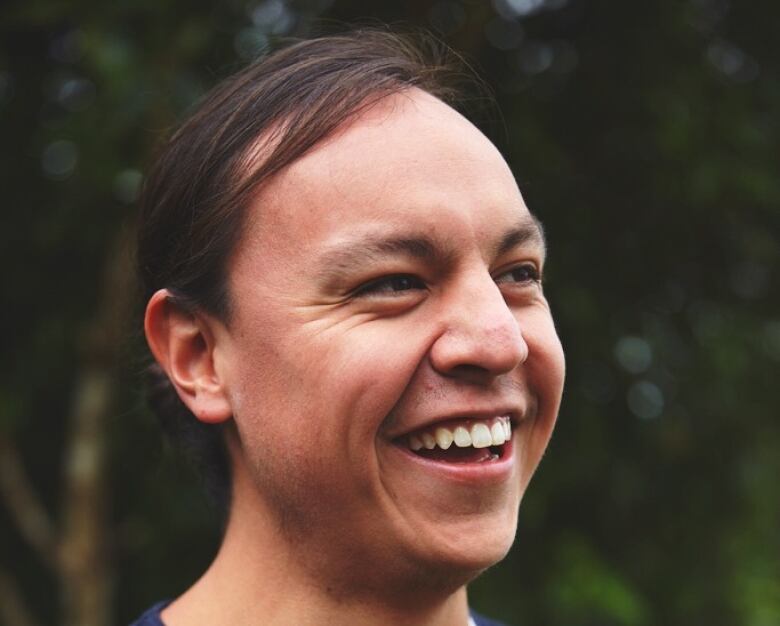
The purpose was to create a historical account of residential schools and encourage reconciliation between Indigenous and non-Indigenous Canadians.
In 2015, the TRCpublished 94 "calls to action"urging the government to change policies and programs in an effort to repair the harm caused by residential schools, and push forward a move toward reconciliation.
FineDay said reconciliation in Saskatchewan won't happen without first confronting racism.
"It's not some boogeyman, some nameless face behind a keyboard; it's your neighbour, it is the person you are shopping next to in the grocery store," FineDay said.
He said the province thrives when Indigenous people do and he wants others to understand that people are linked: "Recognizing that my well-being, as a nhiyaw, as a Cree man from the Sweetgrass First Nation, is connected to their well-being, whether they be in Southey, Strasbourg or Shaunavon."
Revisiting the treaties
FineDay wants people to revisit the promises made more than a century ago.
"When I think about reconciliation, I think about how we've strayed from that path, how we've gone from that bounty and benevolence to poverty and pain."
He said Canada is not the great country of justice people perceive it to be, and that its systems are broken.
"I'm thinking especially about the justice system, about child welfare, about education which have all failed and continue to fail Indigenous young people."
- Calls for child welfare overhaul filter into Sask. after Tina Fontaine's death in Man.
- First Nations in Sask. push for Indigenous children's advocate
FineDay thinks of the treaties when he thinks of reconciliation.
"They talked about respect, they talked about sharing the land, they talked about prosperity for all people," he said.
ChiefCadmusDelormeof theCowessessFirst Nation agrees.
"There's one common thing that we all share and that's the land," saidDelorme.
- Treaty education key to ending racism in Sask., says new commissioner
- What does treaty education look like in Saskatchewan?
"There was a literal treaty written by the Crown, a spirit and intent version that Indigenous people took from it."
The beginning steps toward reconciliation should be simple, he said, beginning by focusing on what it means to share the land.
Canada founded on 'unfair, unjust principles'
"The system that we're working with today was created in the late 1800s when First Nations people needed a pass just to leave their reserve," Delorme said.
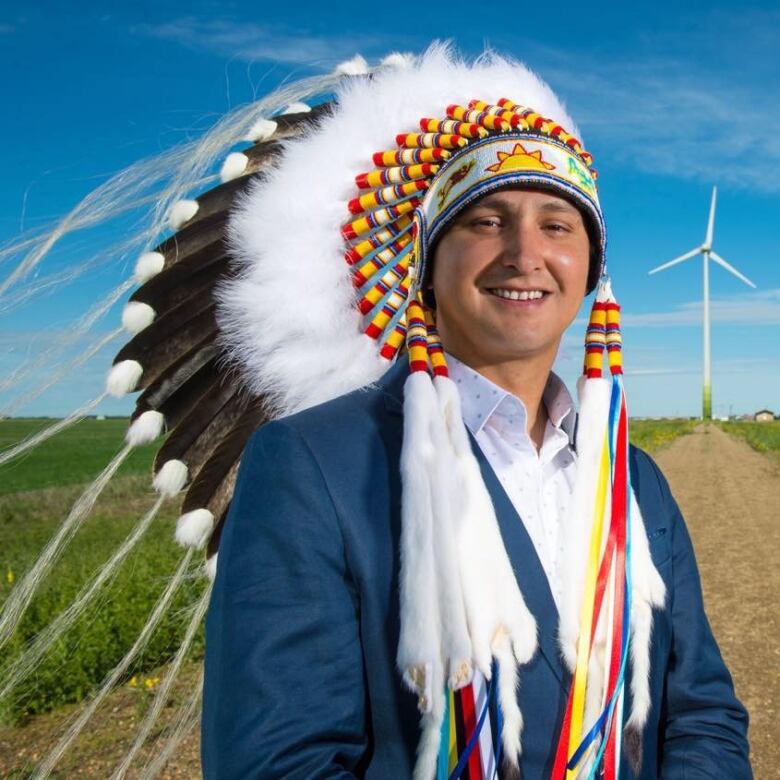
An apparently all-white jury (which CBC cannot independently verify) was selected to come to a verdict in Stanley's trial.
James Daschuk, who authored Clearing the Plains and is a professor at the University of Regina, said Canada, as we know it, was founded upon "unfair, unjust principles."
Until the country gets to the point where those injustices are no longer continuing, he said, reconciliation isn't close. In fact, it's likely generations away.
"It's some shining beacon off in the distance, but we really are not there yet," he said. He thinks Canadians must accept the true history of what was done to Indigenous people, and then justice must be served for those actions to move closer to reconciliation.
Reconciliation has been in the zeitgeist for the last few years.- James Daschuk, author
Daschuk said true reconciliation means a shift in power and resources and people won't like that.
"I think it's tough for mainstream people, for non-Indigenous people, to really understand the depths of the unjust relationship that we've had with these people."
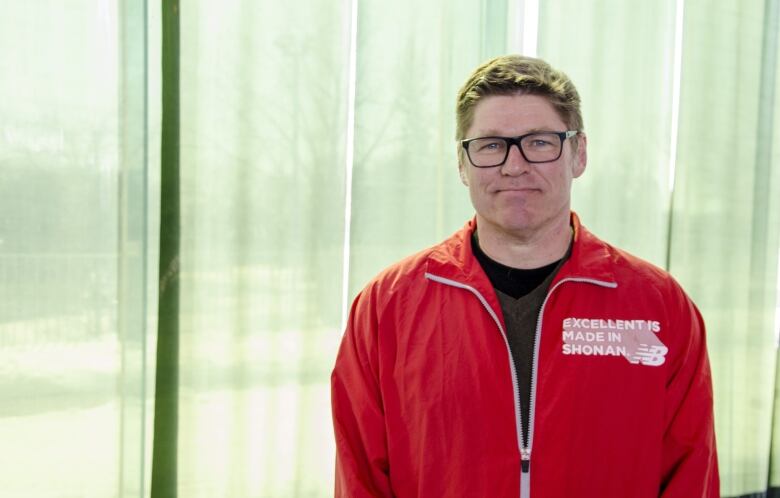
That's not how it will work, Daschuk said, adding tensions seen in recent weeks shows "we've got a pretty high hill to climb."
"We've still got a lot of people, if not only resistant to reconciliation, who are overtly racist."
Reconciliation: The wrong word?
The very meaning of the word reconciliation seems to have been cheapened in public conversation, Daschuk said.
"Reconciliation has been in the zeitgeist for the last few years," he said.
"A lot of people just use it as an event: let's have a reconciliation picnic and then we're good."
By its definition,reconciliation means the return to a relationship that was at one point positively established, said DavidGarneau,a Mtis artist and associate professor at the University of Regina.
He was taken aback by the use of the word.
"It seems like semantics, but this notion that we're trying to repair something that was better in the past, that's just not the case."
He said the word "conciliation" would be more appropriate.
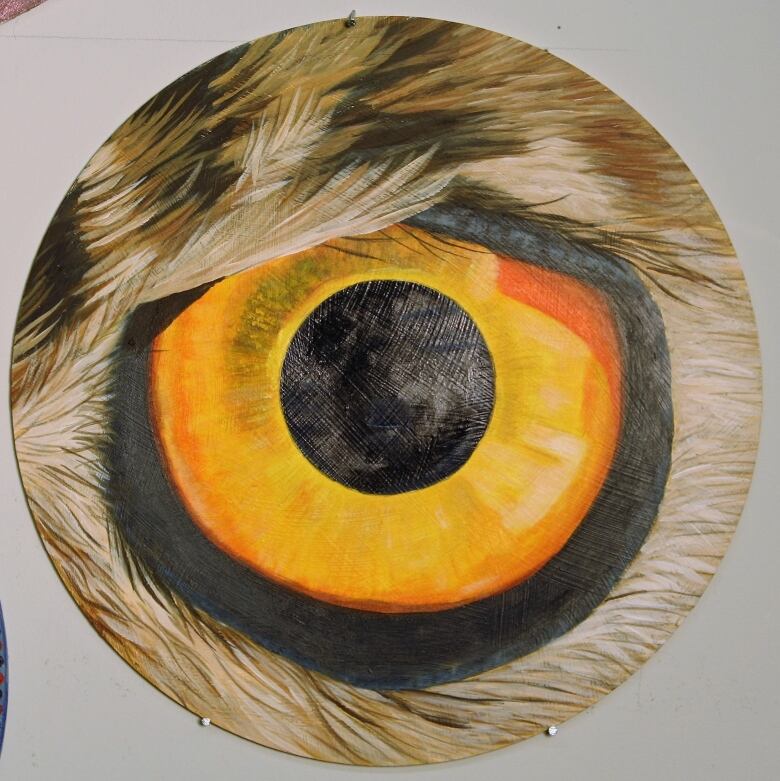
Reconciling with each other, first
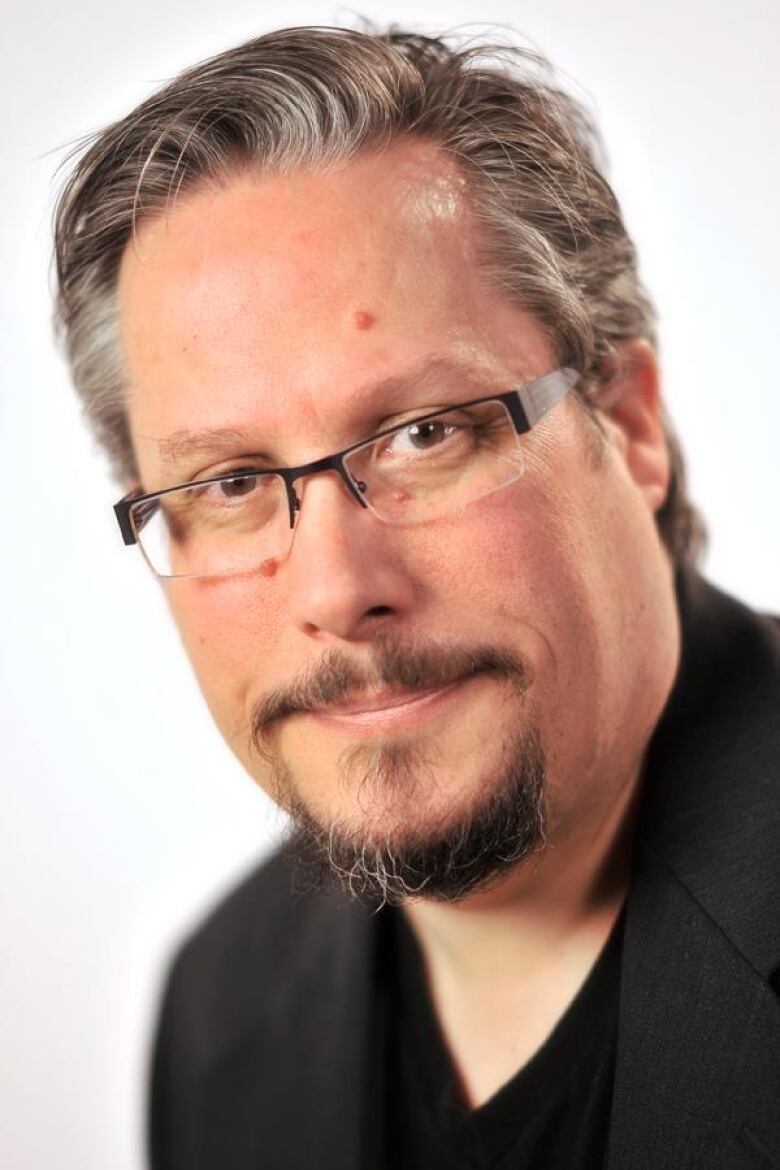
Indigenous people endured abuse at residential schools and also faced the loss of family, culture and language.
Garneau spoke of the fallout the cycles of abuse, addiction and broken families that continued generations afterward.
There was also the Sixties Scoop, a time in which thousands of First Nations and Mtis children were forced out of their homes and placed in non-Indigenous care from the late1950sthrough the1980s. Currently in Saskatchewan, more than 70 per cent of the kids in care are Indigenous.
- Sixties Scoop survivors call for Sask. apology and for healing to begin
- Apology coming but no money for Sixties Scoop: Sask. Premier Brad Wall
Garneau said Indigenous people need to first focus on healing themselves and their loved ones, rather than trying to guide non-Indigenous people through reconciliation.
"That's of greatest concern, at the same time the 'truth' part that has to be revived. It's ongoing, long-term education."
Indigenous people as educators
Garneau said people have forgotten about the "truth" component of truth and reconciliation.
He wants Canadian history embedded into curriculum, museums and art galleries. Furthermore, Garneau said Indigenous people should be teaching the history.
He said he's much more optimistic than when the TRC was created, "since I've seen allies, real colleagues coming forward and bringing that forward into their classroom."
Currently, about six per cent of faculty and staff at the University of Reginaself-identifyas Indigenous. Based on the fall 2017 official enrolment data, about 13 per cent of students have self-identified as Indigenous.
But Garneau said "it has to go beyond the ivory tower, and that's starting to happen."
Shawna Oochoo wants educators at all levels to open their doors and allow Indigenous people to speak their truths.
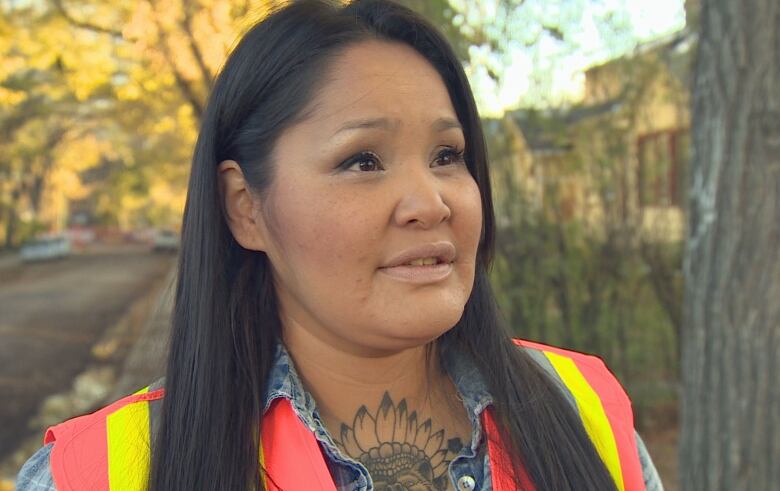
Oochoo is the executive director of Regina's White Pony Lodge and works with Indigenous youth in Regina.
For her, reconciliation doesn't mean forgiveness; rather, it means creating new relationships based on trust, respect and understanding.
"It's actually saying we know what we've done wrong and we're not going to do it anymore," she said. Oochoosaid she felt a deep sense of uncertainty after the Cormier and Stanley verdicts.
"I can't help but feel fear as an Indigenous mother, as an Indigenous community member, to feel fear for these young people [about]what is in store for them."
Former commissioner says people want peace
Reconciliation was officially described as establishing and maintaining respectful relations. It's not an easy, short-term fix nor should it be a quick expectation, said former TRC commissioner Marie Wilson.
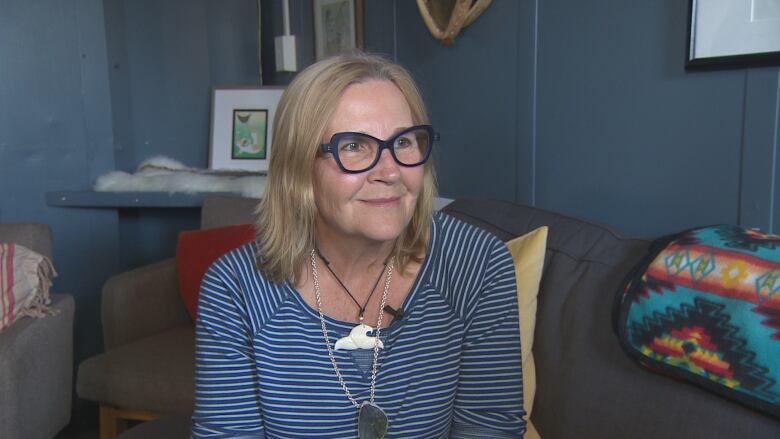
Wilson said people want to find peace: "Despite things that have happened to them in the past, despite things they may have done in the past, despite things other people may have done to them in the past," Wilson said.
"And when I say 'they,' I mean all of us."
On March 20, CBC Saskatchewan is hosting a town hall discussion, 'CBCAsks: Is reconciliation possible?' The sold-out event will be livestreamed our website, on Periscope and YouTube.
Join TheMorning Edition'sZarqa Nawazwith:Marie Wilson, former commissioner with the Truth and Reconciliation Commission of Canada;James Daschuk, author of Clearing the Plains;Chief Cadmus Delormeof the Cowessess First Nation;and Shawna Oochoo, executive director of Regina's White Pony Lodge.
The panel will explore what we need to do to achieve reconciliation. How can we fulfilthe calls to action?












_(720p).jpg)


 OFFICIAL HD MUSIC VIDEO.jpg)
.jpg)



























































































